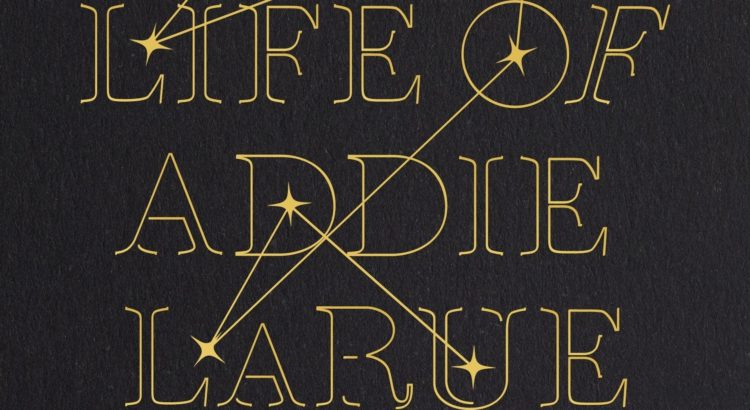“…it is sad, of course, to forget.
But it is a lonely thing, to be forgotten.
To remember when no one else does.”
Adeline LaRue, a young girl in 18th century France, makes a deal with the devil. Or, something like the devil. She’s given the chance to live and be free–but with all dark deals, there is a catch, and that is that she will live until she wants to give up her soul, but that no one can ever remember her, and in this way she walks through the memory of the world as invisible. She cannot say her name, she cannot write, she cannot create or break things. Until, three hundred years later, someone remembers her.
I’m surprised at the speed with which I devoured this book. I felt like everywhere I turned I was hearing about this novel–from the internet, from friends, from the UofM Honors Reads program that’s scheduled a discussion of the book for early March. Wanting to get a head start for the Honors Reads session, I picked up the book early. I had not predicted that I would be done with the ~450 page sucker in the matter of a few days.
I didn’t want to like this book as much as I did. The books I tend to gravitate towards are typically dark and almost pretentiously intellectual–think Donna Tartt’s The Secret History or Kazuo Ishiguro’s Never Let Me Go. This bestseller, while still possessing some dark and gothic elements, in tone was relatively fluffy and light-hearted. It still managed to captivate me.
V.E. Schwab has spun a tale that reads smoothly and effortlessly, though at times the pace is slow and repetitive–a flow fitting for the world of our spirited, immortal heroine Addie.
If you’re like me and romance in books has never really struck your fancy, you may find yourself frustrated with the love story of the novel. Beginning the book, I was intrigued to discover how Addie would choose to handle her curse, and was a little disappointed when the story shifted more than I had hoped into a somewhat cliché love triangle trope (albeit with some interesting twists). However, even I was able to set aside my cynicism and enjoy how love and connection mattered in the life of a girl cursed to never experience any.
Despite the heterosexual romance, the representation of bi, pan, and queer characters in the book was, as NPR’s Caitlyn Paxson describes, “refreshingly casual for fiction.” I also appreciated the use of art to weave together the story of Addie LaRue throughout each of the book’s sections.
If not just a fun and entertaining read that I was begrudgingly sucked into for a few days, this book did cause me to think about the idea of living forever with the curse Addie carried. How would I spend my time if I had as much of it as I wanted? In the end, I realized my answer was still relevant to the finite time we all have living now. No matter how many limited or unlimited years, months, days, hours, minutes, seconds we get: it’s not as much about how much time we get, but instead how we choose to savor every bit of it.
3.5/5 stars


